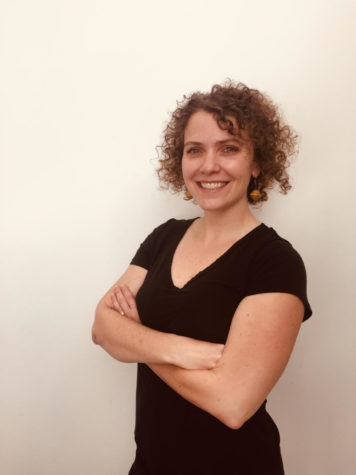Quality Matters for Apparel, Merchandising and Design course
Dress, Appearance, and Diversity in U.S. Society is an online course taken by many students at Iowa State, commonly taken as a humanities requirement.
Apparel, Merchandising and Design 165: Dress, Appearance, and Diversity in Society has been awarded the Quality Matters certificate, due in part to the creation of an implemented e-book.
Quality Matters is a third-party, faculty-centered and peer-reviewed process that professors can undergo in order to learn some of the most well-tested and accessible methods to improve their classes. The intention of these methods is to create a strong communication link with students, create an easily accessible set of course components and involve varying levels of interactivity. Kelly Reddy-Best, associate professor at Iowa State, was awarded the certificate and related grant by Quality Matters.
Instructors who seek to improve their class setting can approach The Center for Excellence in Learning and Teaching (CELT), where at the completion of a specialized course, they will be awarded the Quality Matters certificate. The training for instructors is a 12-week optional course that is grant funded for instructors who seek to improve their class setting.

Reddy-Best undertook this training in order to learn various ways she could improve the class, which is commonly taken as a humanities requirement. Reddy-Best said the biggest takeaway she had from this was the development of her new e-book that she provides for the class.
Reddy-Best’s class is about how dress and appearance is represented in the United States and how it affects society.
“In AMD 165, we examine dress and appearance of historically marginalized identities and communities in North America,” Reddy-Best said. “The students learn about fashion and dress theories and concepts and social justice issues related to fashion, identity and the fashion industry.”
Another important aspect of the class is how dress and appearance “communicate” to others. The class discusses how clothing makes individuals feel and why. Reddy-Best felt as though the information held in this class was not as easily accessible, which led to her undertaking this whole process.
“Because there wasn’t a great resource out there that focused on fashion, identity, and social justice, I wrote an open-source textbook,” Reddy-Best said. “Having an open-source textbook is also a way to center justice philosophies in the course beyond the content. The open-source textbook platform also allowed me to include really dynamic components in the text such as videos and interactive questions.”
Reddy-Best said creating the e-book was one way to make her class more easily navigable, being one of the intentions of the training. Among these dynamic components were also concept check questions and “drag and drop” elements, matching words with definitions. Every aspect of the creation process was intended to assist students in many ways, including financially.
“This course that many students have to take does not have an expensive textbook to purchase,” Reddy-Best said. “This is something that is really important, especially with the rising price of textbooks.”
The book is openly available on the Dress, Appearance and Diversity in U.S. Society website, meaning that even those not enrolled in the class or even at Iowa State can read the book.
Your donation will support the student journalists of the Iowa State Daily. Your contribution will allow us to purchase equipment, send our student journalists to conferences and off-set their cost of living so they can continue to do best-in-the-nation work at the Iowa State Daily.











